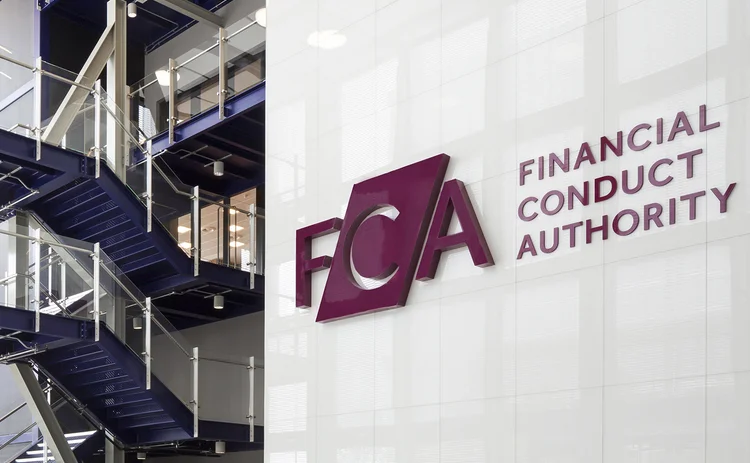
FCA move brings regulatory risk to use of hold times
Regulator’s adoption of code, and rejection of extra hold times, means those ignoring it risk scrutiny under SMCR

Individuals at foreign exchange liquidity providers (LPs) who continue to implement additional hold times in their last look checks could risk regulatory investigations from the UK Financial Conduct Authority, following the regulator’s confirmation of its views on the topic last week.
On November 11, the FCA formally recognised the updated version of the FX Global Code, and specifically stated that the use of additional hold times in last look checks are not permitted under the Code. This echoed comments made by Guy Debelle, chair of the Global FX Committee (GFXC) and deputy governor of the Reserve Bank of Australia at a recent industry event, which some LPs were treating as unofficial and non-binding.
Regulatory experts now say this stance from LPs could be a risky one, as the FCA’s adoption of the updated code – and its views on additional hold times – is observed as part of the UK’s senior managers and certification regime (SMCR).
“At the end of the day, the FCA believes – and states – that the letter and spirit of the FX Global Code must be upheld to demonstrate proper standards of market conduct. Those that do not follow this maxim may be subject to inspection and consequent enforcement actions,” says David Woolcock, founder and chief executive officer of Derivative Consulting. Woolcock is also chair of the ACI committee for professionalism, and member of the disclosures working group within the Bank for International Settlements market practitioners group, but was speaking to FX Markets in a personal capacity.
Definitions differ, but last look broadly comprises two parts: a price validity and credit check, and an additional hold time applied by many LPs to see whether a client’s trading behaviour makes them unprofitable to deal with. The latter has long been controversial, with critics claiming it increases reject rates and the cost of trading for end-users.
Despite additional hold times being outlawed in the code, some market participants saw the guidance as vague and spied loopholes allowing for their continued use. But Debelle’s comments in September went further, explicitly stating that additional hold times used to check client profitability were against the code.
The FCA’s comments on November 11 back this up: “Regardless of the terminology used, last look practices that incorporate a delay that is additional to what is required to complete price and validity checks (some market participants refer to such deliberate delays as ‘additional hold time’) are not consistent with the [FX Global Code]. For example, market participants should not prolong the duration of the last look window for the purpose of seeing if future prices move in their favour in relation to the client’s trade request,” said the FCA.
Stephane Malrait, chairman of the ACI Financial Markets Association, says the FCA comments provide much-welcomed additional clarity on the issue of additional hold times – clarity that many market participants were originally hoping the GFXC would provide.
The FCA believes – and states – that the letter and spirit of the FX Global Code must be upheld to demonstrate proper standards of market conduct
David Woolcock, Derivative Consulting
“This update is a welcome one, as it provides further clarity on what an additional hold time is and how acceptable imposing them on clients is – following Guy Debelle’s previous comments on this topic. So the FCA’s recognition update is helpful,” he says.
According to Woolcock, the FCA most likely made these specific comments on additional hold times because it is aware of the controversy surrounding how “official” previous guidance from the GFXC has been on this issue.
“Because the FCA are aware of this controversy as to whether that additional guidance on hold times is part of the Code, they’ve probably decided to say that for UK participants there is no doubt that additional hold times are not conducive to proper market standards in their opinion, and they could investigate it,” he says.
A closed door
Regulatory experts say that while there may have been lingering doubts about whether the practice could continue, the FCA has effectively closed the door on any LP in the UK looking to continue imposing an additional hold time on client trades subject to last look.
This is because the regulator’s move to adopt the code gives legal weight to the guidelines under the UK’s SMCR. Any senior manager, certified individual or individual of an authorised firm subject to SMCR is expected to “observe proper standards of market conduct” as part of SMCR’s five conduct rules, which take adherence to codes that the FCA has recognised into account.
If an LP was seen to be breaching the FX Global Code, they could be viewed as breaching SMCR, resulting in an investigation by the FCA.

“People get very confused about the FCA recognising codes of conduct, as it’s a very unique UK thing, but in recognising a code, the FCA takes its principles on-board, so if they found that a firm appeared to not be abiding by the spirit of the FX Global Code it would be indicative to them of that firm – or person – not observing proper market standards under SMCR,” says Woolcock.
“In that situation, the FCA’s enforcement division would look at how serious this breach against the FX Global Code was before launching an investigation to find out exactly what’s happening at that particular firm,” he adds.
According to Tina Lakhani, senior associate solicitor at law firm Irwin Mitchell, if the FCA became aware that a particular liquidity provider was imposing an additional hold time on clients, the FCA would have the power to take enforcement action against it.
“Failing to adhere to code guidance may result in legal ramifications. While industry codes that have been recognised by the FCA do not automatically have the same status as FCA rules, they will be taken into consideration by the FCA when making a decision as to whether it should utilise its enforcement powers,” she says.
According to Woolcock, such enforcement powers could see liquidity providers fined millions of pounds – with the FCA potentially using its powers under SMCR to bring a legal proceeding against the LP.
“Which could result in individuals going to jail,” he says.
The head of FX at one large European asset manager says the threat of action under SMCR might be enough to put LPs off continuing to impose additional hold times on clients: “If I was in a position to sign off, I would now be very careful,” he says.
The ACI’s Malrait says the FCA’s recognition of the code could also be used in legal proceedings brought against LPs by clients. If a client wanted to take a bank to court because they imposed an additional hold time on their trades, the judge could take the FCA’s recognition of the code into account, giving the client’s argument more legal weight.
“Because the Code is recognised by a regulator, it therefore gives more weight to the client’s argument, despite the fact that the Code itself isn’t a legally binding document,” he says.
A rush to update
With further clarity on additional hold times having now been provided by the FCA, Woolcock says his bank clients active in the UK FX market are now “rapidly scrambling” to update their trading disclosures.
However, some remain adamant that additional hold times should be allowed so long as there is an explicit agreement between them and the client that they are being used to provide a benefit to the client – such as higher trade acceptance rates. For those LPs, Woolcock advises that they keep a paper trail of correct documents and records relevant to the arrangement.
It’s for banks to use their subjective judgment as to whether they are observing the expected standards and acting in the client’s interests
David Woolcock, Derivative Consulting
“Of interest would be if the client approached the bank or vice versa, and how the benefit to the client was illustrated. For example, it’s easy to tell a client that an adjustment to hold times would reduce their rejects, but if those rejects were only of trades when the market had subsequently moved in the client’s favour and not when the market had moved in the bank’s favour, then it’s harder to explain the benefit the client faces in that situation,” he says.
“At the end of the day, the FCA expects people to uphold the FX Global Code as part of good and proper market conduct and anyone not doing that is at risk of supervisory action from the FCA. Thus, it’s for banks to use their subjective judgment as to whether they are observing the expected standards and acting in the client’s interests,” he adds.
While the FCA only oversees the UK market, the ACI’s Malrait believes all LPs across the globe should be reconsidering their trading practices too, as other regulators are likely to follow the regulator’s lead.
“The UK is the biggest FX market in the world – most FX transactions are conducted in or pass through the UK, and most liquidity providers will have a presence in the UK, and so will have signed up to the Code, including their UK entity. That, coupled with the FCA’s recognition of the Code, means that regulators in other regions are likely to look to the UK as an example and follow suit in recognising the Code,” he says.
Only users who have a paid subscription or are part of a corporate subscription are able to print or copy content.
To access these options, along with all other subscription benefits, please contact customer services - www.fx-markets.com/static/contact-us, or view our subscription options here: https://subscriptions.fx-markets.com/subscribe
You are currently unable to print this content. Please contact customer services - www.fx-markets.com/static/contact-us to find out more.
You are currently unable to copy this content. Please contact info@fx-markets.com to find out more.
Copyright Infopro Digital Limited. All rights reserved.
You may share this content using our article tools. Printing this content is for the sole use of the Authorised User (named subscriber), as outlined in our terms and conditions - https://www.infopro-insight.com/terms-conditions/insight-subscriptions/
If you would like to purchase additional rights please email info@fx-markets.com
Copyright Infopro Digital Limited. All rights reserved.
You may share this content using our article tools. Copying this content is for the sole use of the Authorised User (named subscriber), as outlined in our terms and conditions - https://www.infopro-insight.com/terms-conditions/insight-subscriptions/
If you would like to purchase additional rights please email info@fx-markets.com
More on Regulation
European funds face upsurge in settlement risk after T+1
Trade body Efama finds up to 40% of daily FX flows may have to settle outside protection of CLS
Basel Committee prepares crackdown on bank ‘window dressing’
Study says lenders have obscured their true systemic importance at reporting dates
Emir 3.0 threatens lag for Simm revisions
New EU rules could stall changes aimed at improving risk sensitivity of industry margin models
US dealers slam capital hit on clearing for unreal CVA risk
Fed would diverge from Basel standards by imposing CVA capital on client-cleared trades
In a world of uncleared margin rules, Isda Simm adapts and evolves
A look back at progress and challenges one year on from UMR and Phase 6 implementation
Dealers braced for Taiwan swaps clearing mandate
Expected FSC directive on TWD interest rate swaps could spur growth in FX clearing, say bank execs
Clearing members fear CFTC bending rules for crypto
Critics warn new framework for Bitnomial and LedgerX could undermine clearing integrity
Regulators’ FRTB estimates based on faulty premise – industry study
US market risk capital requirements could more than double if banks abandon IMA








